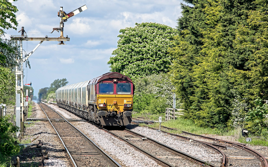I suspect we all knew it was coming, but Network Rail has finally confirmed that it is to cut renewals spending over 2024-29. It now expects track, signalling and structures to become less reliable as a result.
NR reveals this situation in its Strategic Business Plan for Control Period 7 (2024-2029), which it submitted to the Office of Rail and Road in late February, but which ministers have only just consented to NR making more widely available.
The national track owner faces the same problems as we all do - high inflation and fixed cash income. Faced with rising bills wherever they look, NR’s managers are being forced to prioritise. This means deferring expensive renewals in favour of short-term maintenance fixes. This is usually more expensive in the long-term, but if you don’t have the cash for the more expensive items then you’re forced to spend smaller annual sums to keep things going.
Inflation also makes it challenging to predict costs and spending for the far end of the Control Period in 2029.
Nevertheless, CP7 still contains some hefty renewals - not least the northern end of the West Coast Main Line, which British Rail electrified and resignalled in the early 1970s. Next year marks the 50th anniversary of Anglo-Scottish electric trains with the arrival of Class 87s into Glasgow Central, consigning Class 50 diesel locomotives to more humdrum work elsewhere.
Little wonder that NR is now to start wholesale renewals on the route!
Read this article in full in RAIL issue 984 here
To read all our magazine articles, choose from either a Digital Edition Membership from just 99p for your first month, or a Print & Digital Edition package from just £9.50 per month. Choose your Membership here
















Login to comment
Comments
No comments have been made yet.